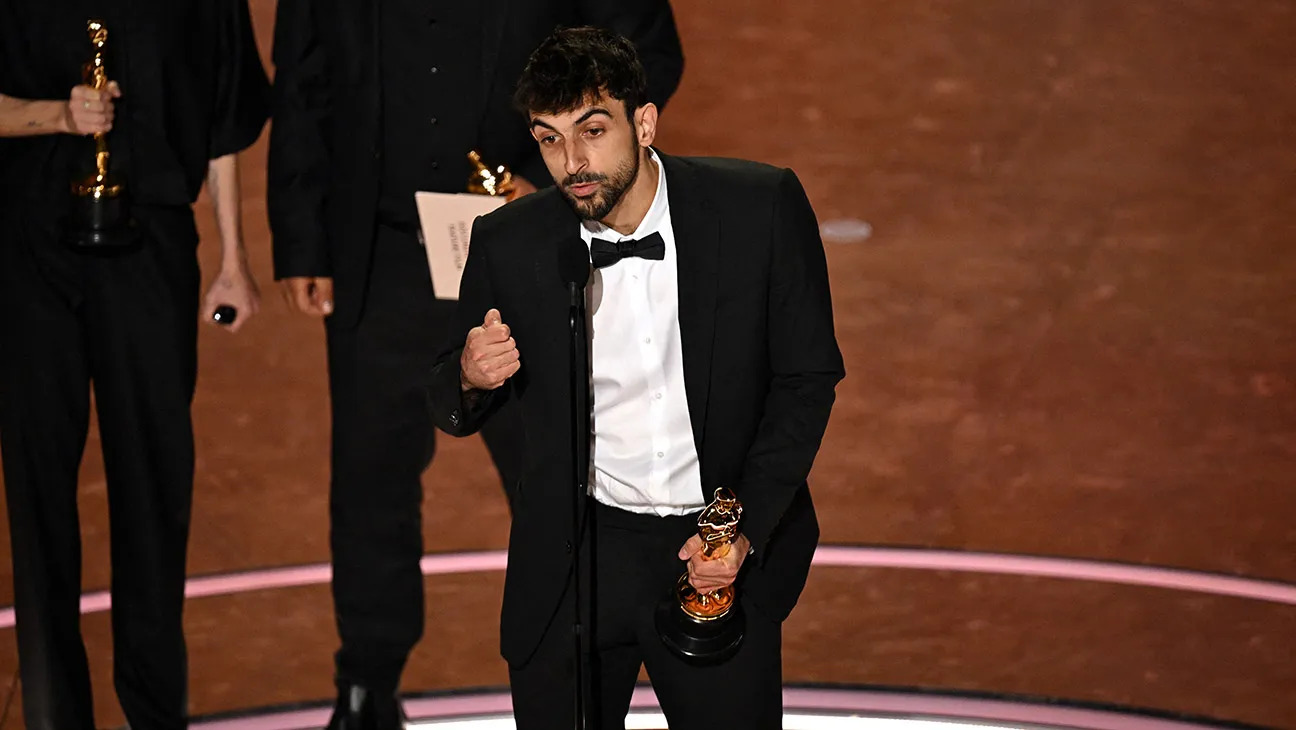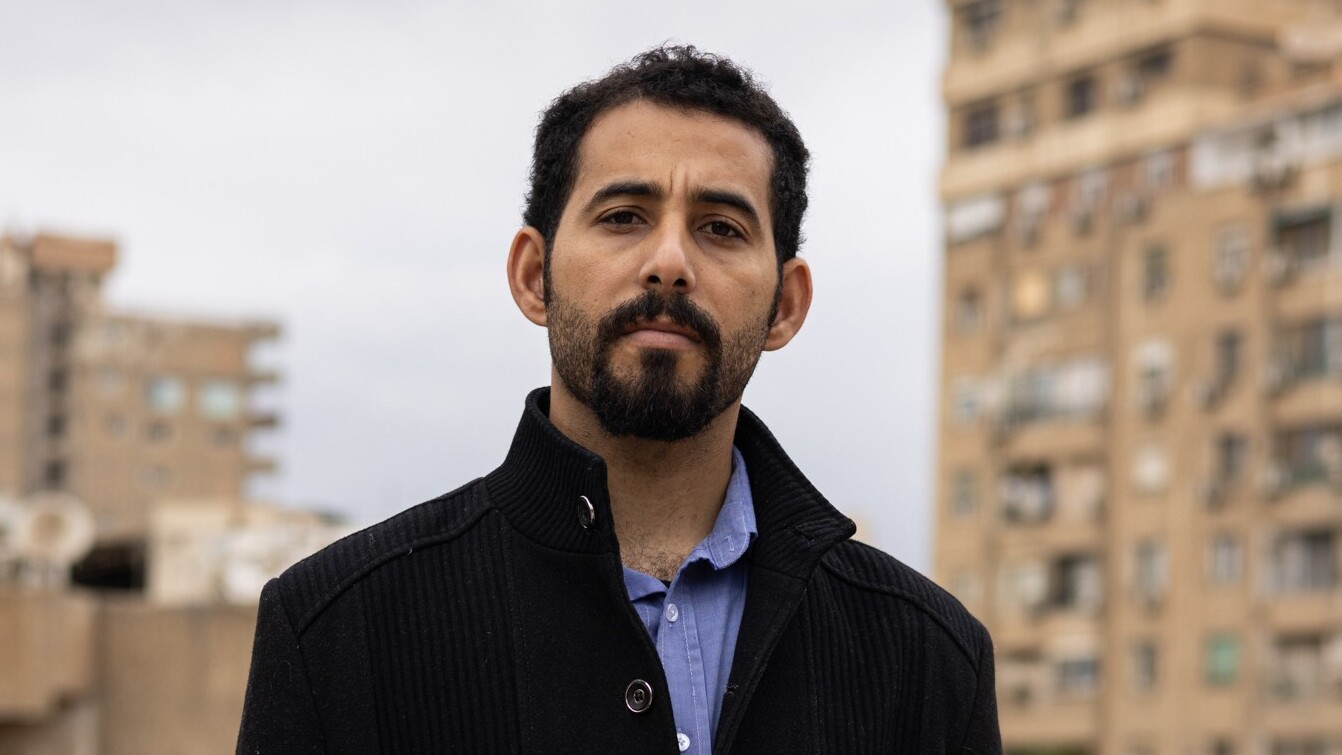'No Other Land' Wins Oscar Despite Lack of US Distribution, Marking Historic Triumph for Palestinian Cinema

A documentary chronicling settler violence and the demolition of Palestinian homes in the occupied West Bank made history Sunday night by winning the Oscar for Best Documentary.
Since its release last year, No Other Land has won multiple accolades, including awards at the Berlin Film Festival and the New York Film Critics Circle Awards.
Filmed between 2019 and 2023, the film is composed primarily of personal camcorder footage captured by Palestinian activist Basel Adra, 28, who documented the Israeli military’s destruction of his hometown, Masafer Yatta.
 A Palestinian woman sits next to remains of her home demolished by Israeli bulldozers in a disputed military zone/AFP
A Palestinian woman sits next to remains of her home demolished by Israeli bulldozers in a disputed military zone/AFP
It exposes Israel’s demolition of homes in the village, which the military seeks to convert into a training zone.
Adra co-directed the film with Israeli journalist Yuval Abraham, Palestinian filmmaker Hamdan Ballal, and Israeli filmmaker Rachel Szor.
Powerful Duo Acceptance Speech
During his Oscar acceptance speech in Los Angeles, Adra spoke about the ongoing struggles of Palestinians.

Adra giving his acceptance speech in Los Angeles
“This film reflects the harsh reality we have been enduring for decades and still resist as we call on the world to take serious actions to stop the injustice and the ethnic cleansing of Palestinian people,” Adra said. “About two months ago, I became a father, and my hope for my daughter is that she will not have to live the same life I’m living now,” he added.
Abraham echoed his sentiments: “When I look at Basel, I see my brother. But we are unequal. We live in a regime where I am free under civilian law, and Basel is under military laws that destroy lives, that he cannot control.”

Abraham calls out and condemns U.S’s foreign policy
Abraham called for an end to the "atrocious destruction of Gaza," the release of Israeli hostages taken on Oct. 7, and a political resolution that ensures equal national rights for both Palestinians and Israelis.
The directors also condemned U.S. foreign policy, arguing that it obstructs the path to peace.
"There is a different path—a political solution without ethnic supremacy, one that grants national rights to both our peoples," co-director Yuval Abraham said. "And I have to say, standing here today, the foreign policy of this country is actively blocking that path."
A Film Without U.S. Distribution
Despite its critical acclaim, No Other Land struggled to find U.S. distribution. It was ultimately self-distributed, with screenings in nearly 100 theaters due to overwhelming demand.
“I believe it’s clear that it’s for political reasons,” Abraham told Deadline. “We decided not to wait on a theatrical release because demand in the United States is so high.”
Earlier AMT reported on the growing challenges of depicting Palestinian stories on screens.
Palestinian-British filmmaker Farah Nabulsi, who earned an Oscar nomination for The Present, has also spoken about these difficulties.
Major U.S. streaming platforms have not acquired "No Other Land," despite it being the highest-grossing Oscar-nominated documentary.
The absence of distribution follows Netflix's controversial removal of 24 Palestinian films from its archives last year, which fueled accusations of Hollywood suppressing Palestinian narratives.
While streaming options remain limited, the documentary is available for rent or purchase on Amazon UK, Microsoft, Sky Store and Apple TV.
Cold Shoulders: Some Celebrities Withhold Applause
The ceremony was not without controversy. Social media erupted after some Hollywood figures appeared indifferent to No Other Land’s win.
Diane Warren, a 16-time Oscar-nominated songwriter, did not clap as the filmmakers walked past. Actress Mikey Madison, who won Best Actress for Anora, gave only a belated standing ovation, while comedian and director Ben Stiller offered a brief, seemingly dismissive clap.
Their reactions sparked backlash, with many viewers calling out the perceived lack of respect.
 Meanwhile, actor Guy Pearce, nominated for The Brutalist, openly supported Palestine by wearing a “Free Palestine” pin featuring a dove holding an olive branch.
Meanwhile, actor Guy Pearce, nominated for The Brutalist, openly supported Palestine by wearing a “Free Palestine” pin featuring a dove holding an olive branch.
Pearce, who has spoken out against Israel’s actions in Gaza, shook hands with the No Other Land filmmakers as they accepted their award, earning widespread praise.
Why This Oscar Win Is Important
Beyond its unique collaboration between Palestinian and Israeli filmmakers, No Other Land’s Oscar victory has made Palestinian narratives impossible to ignore—especially in the U.S. where such stories often struggle for visibility.
“This moment brings me to tears—Palestinian art is finally being recognized on such a scale,” Palestinian poet and activist Mosab Abu Toha said. “This win is well-deserved, not only for the incredible artists behind the film but because our story is just and deserves all the recognition and support it can get.”
Abraham also highlighted the difficulty of bringing Palestinian stories to American audiences.
“In the U.S., the conversation feels far more restricted—there’s little room for this kind of critique, even when it comes in the form of a film,” he said.
Though Palestinian filmmakers have been nominated in the past—most notably Hany Abu-Assad’s Paradise Now (2006) and Omar (2014)—this is the first time a Palestinian filmmaker has won an Oscar.






